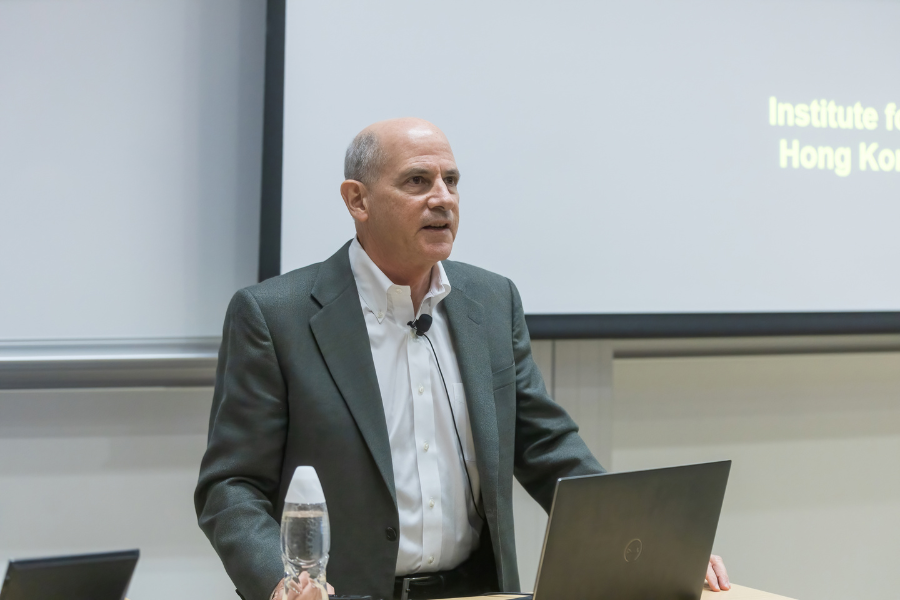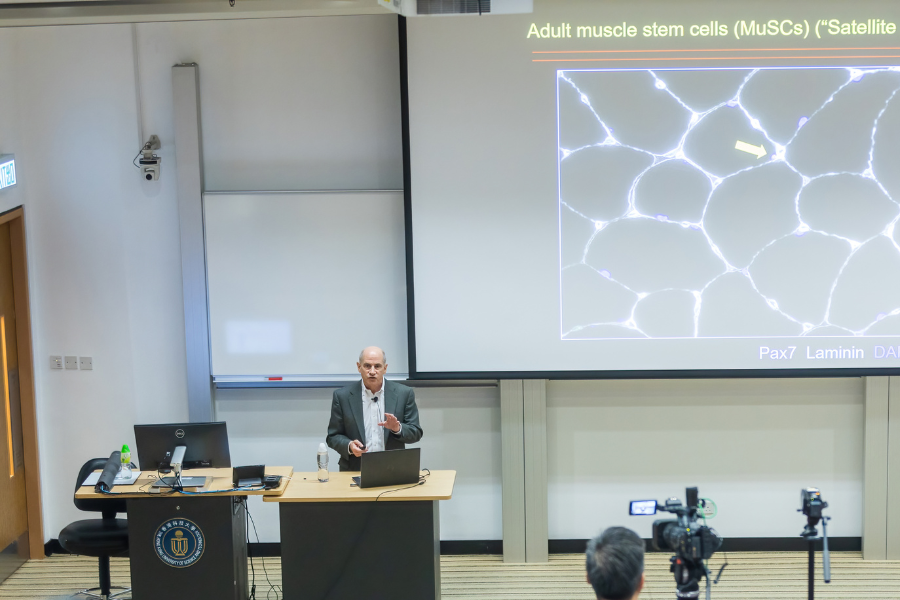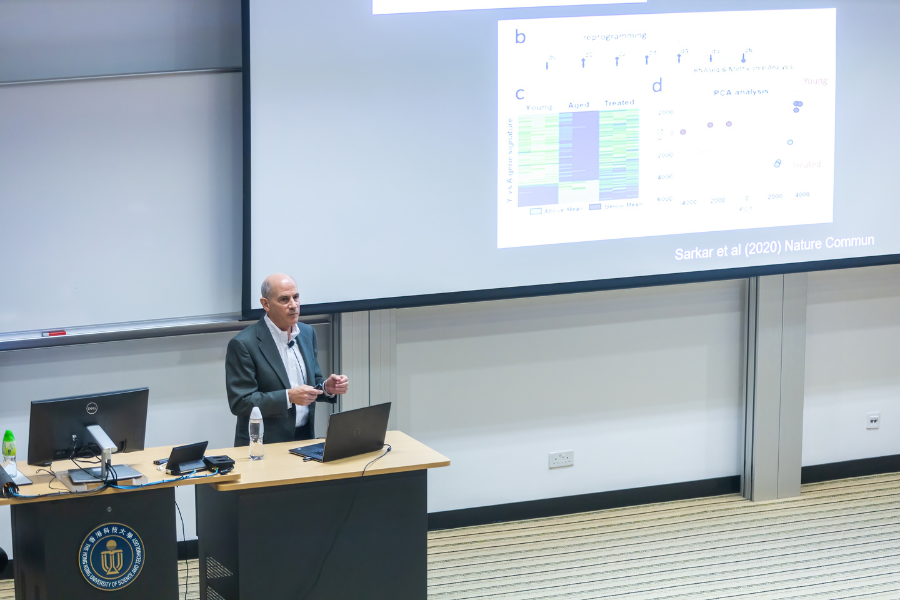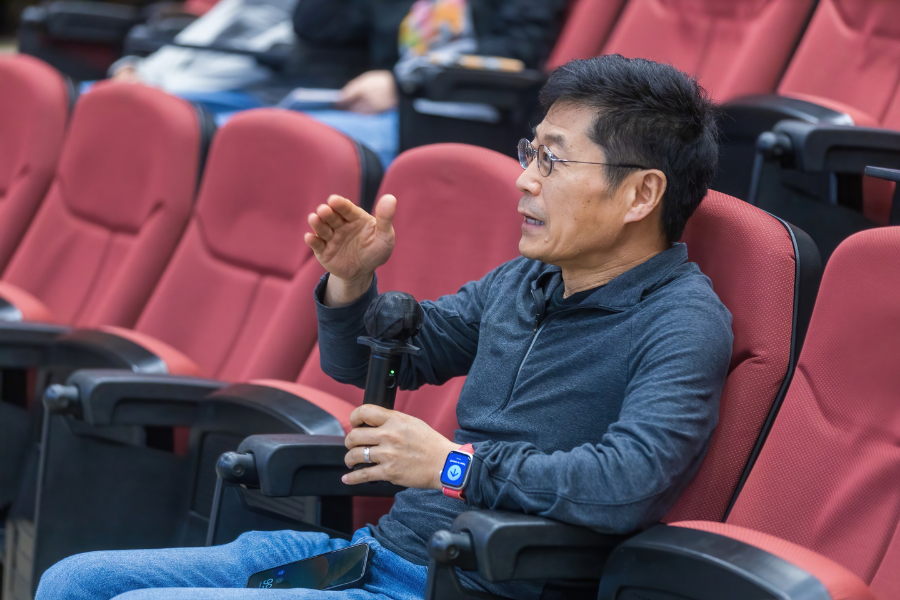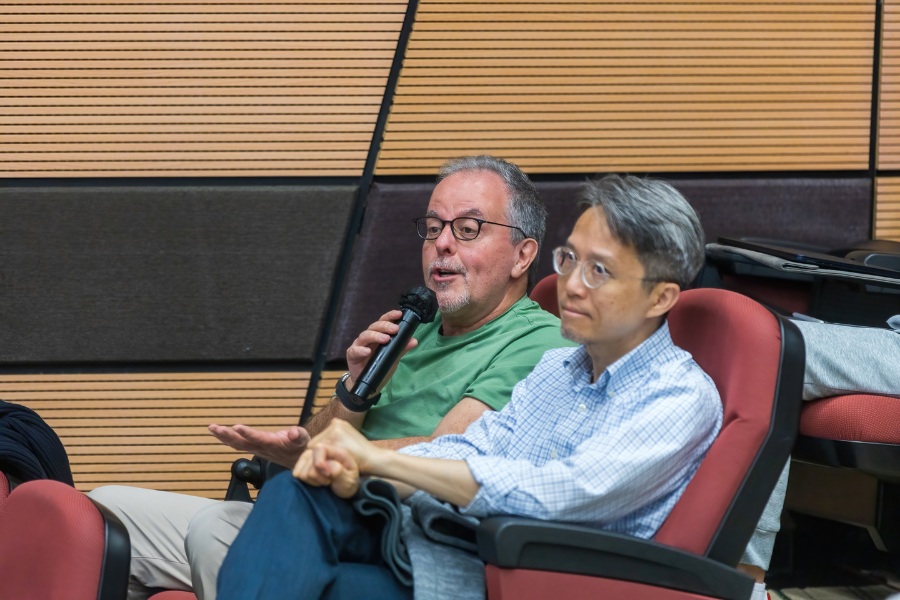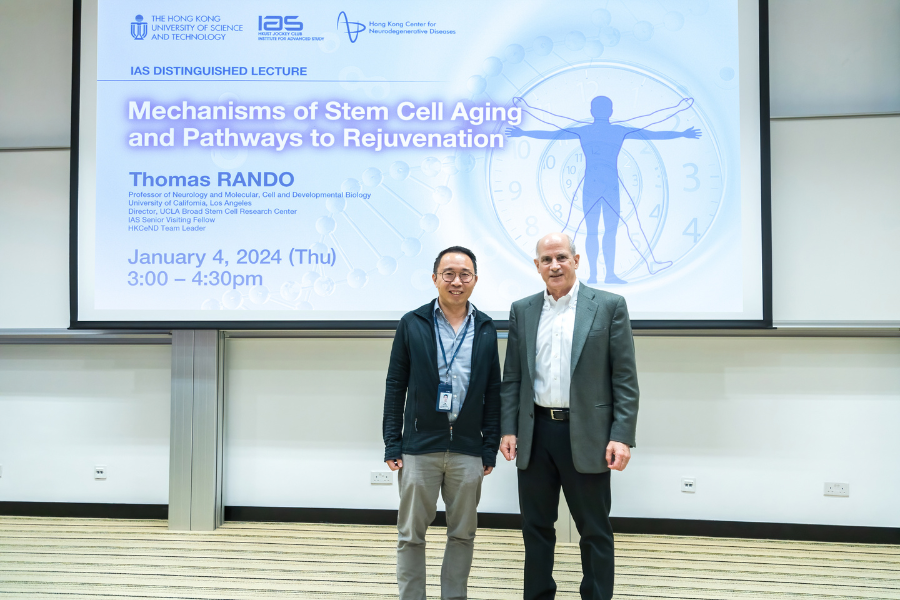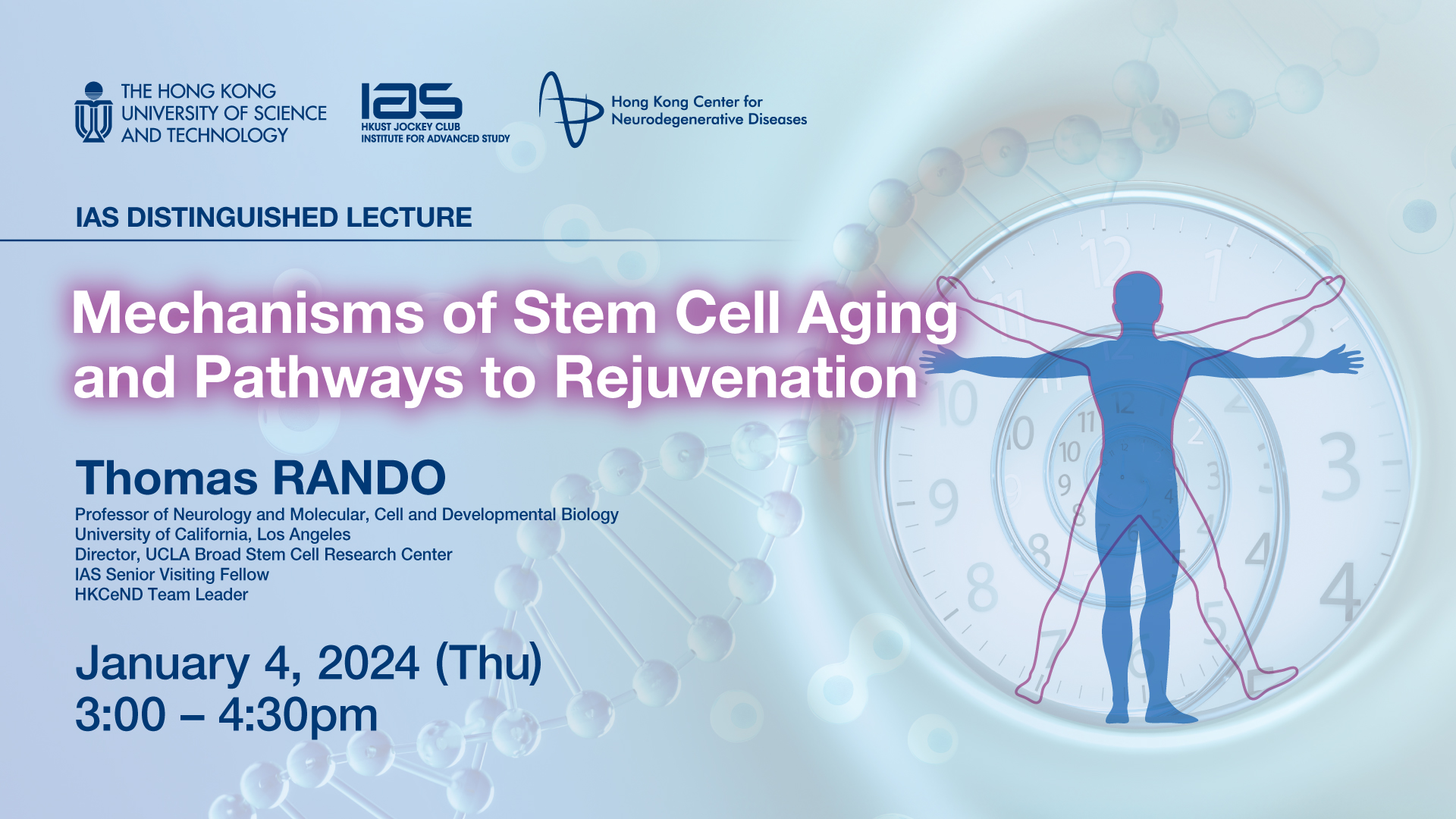Mechanisms of Stem Cell Aging and Pathways to Rejuvenation
Abstract
There is an age-dependent decline in stem cell functionality in most if not all tissues in the body. Many molecular, biochemical, and functional features of aged stem cells have been characterized. The speaker and his research team previously showed that the molecular and functional characteristics of aged stem cells can be restored to more youthful levels by heterochronic parabiosis. In more recent studies, they have focused on how lifestyle changes, like diet and exercise, can also exert rejuvenative effects on aged stem cells. They have studied how chromatin modifications respond to these interventions and may underlie the improvement of stem cell function. They are currently exploring how changes in cellular metabolism impact chromatin regulators, and thus chromatin itself, during the aging process and in response to rejuvenative interventions. These studies highlight evolutionarily conserved mechanisms of cellular homeostasis that determine the biological age of a cell and how that age can potentially be modified.
About the speaker
As a board-certified neurologist who ran a clinical service for more than 20 years, Prof. Thomas RANDO brings a strong translational focus to his own research and to his roles leading research enterprises. His interdisciplinary research program has made significant contributions to the fields of stem cell biology, the biology of aging, regenerative medicine and degenerative diseases. He has been at the forefront of studying how environmental influences affect the aging of stem cells and how alterations of those environmental factors can delay or reverse age-related changes.
His pioneering studies of the regulation of aging in mice showed that old tissues could be rejuvenated by exposure to young blood. These studies have formed the basis of an expanding area of research in the aging field and led to clinical trials of novel therapies for Alzheimer's disease and other neurodegenerative diseases. Prof. Rando's muscle regeneration and muscular dystrophy research informed the development of novel tools that enable non-invasive assessment of disease progression and therapeutic response in preclinical models of muscular dystrophies.
For Attendees' Attention
Seating is on a first come, first served basis.

